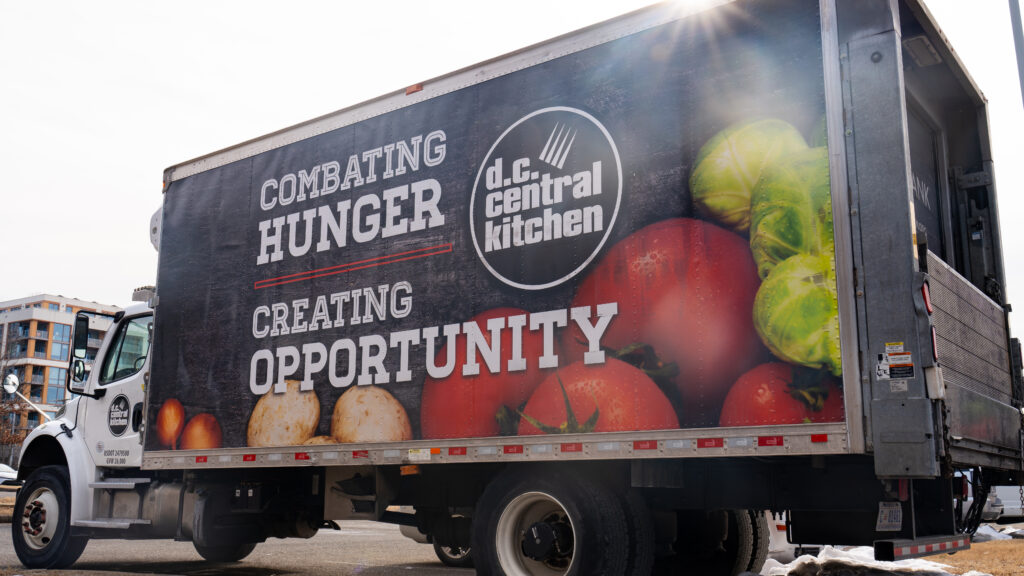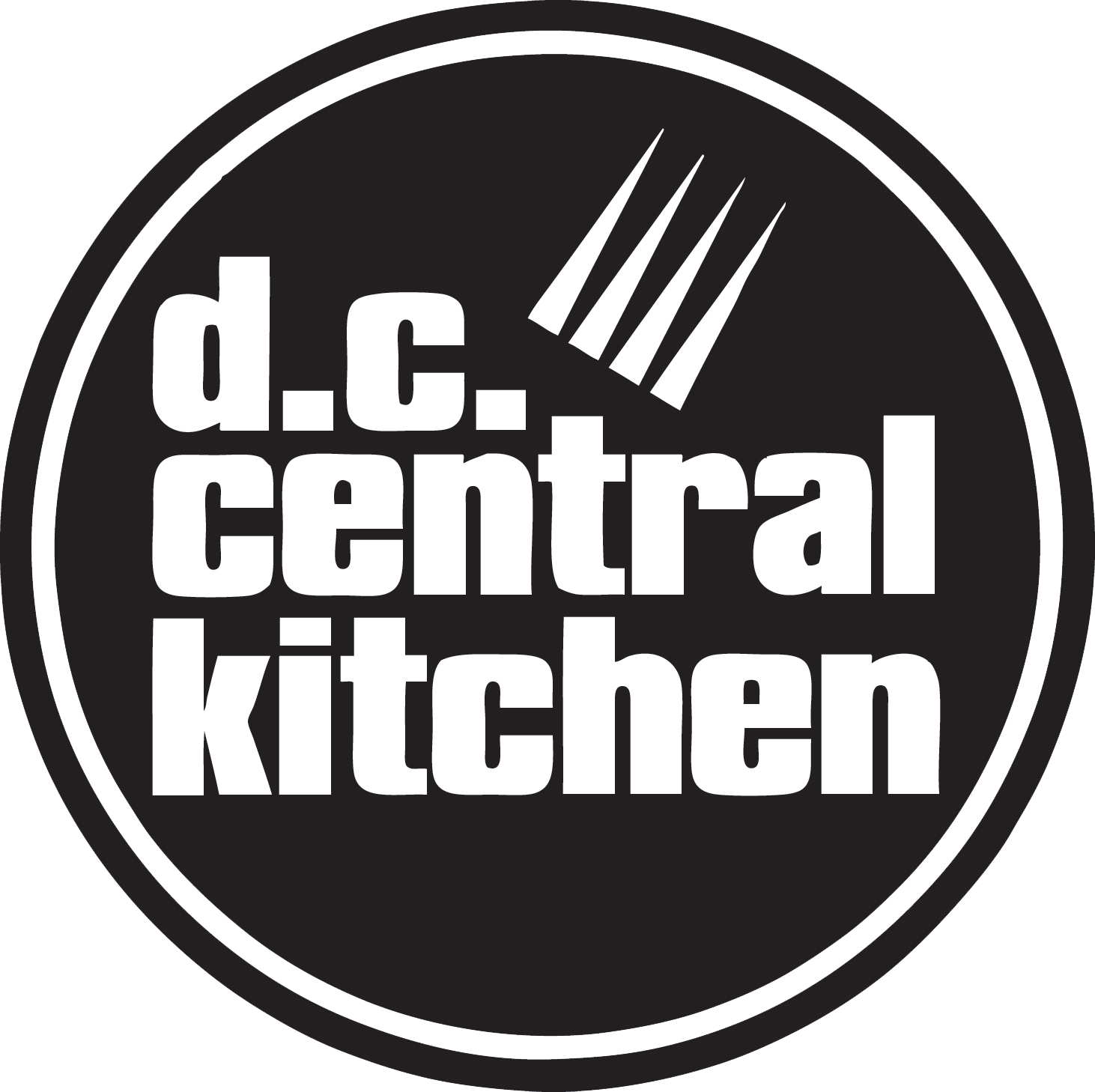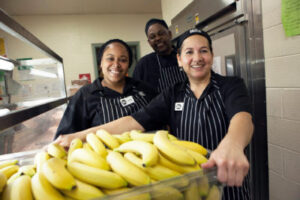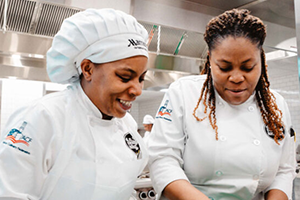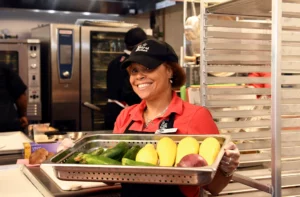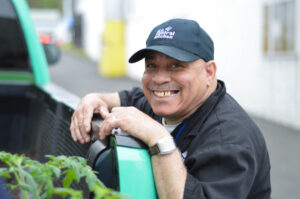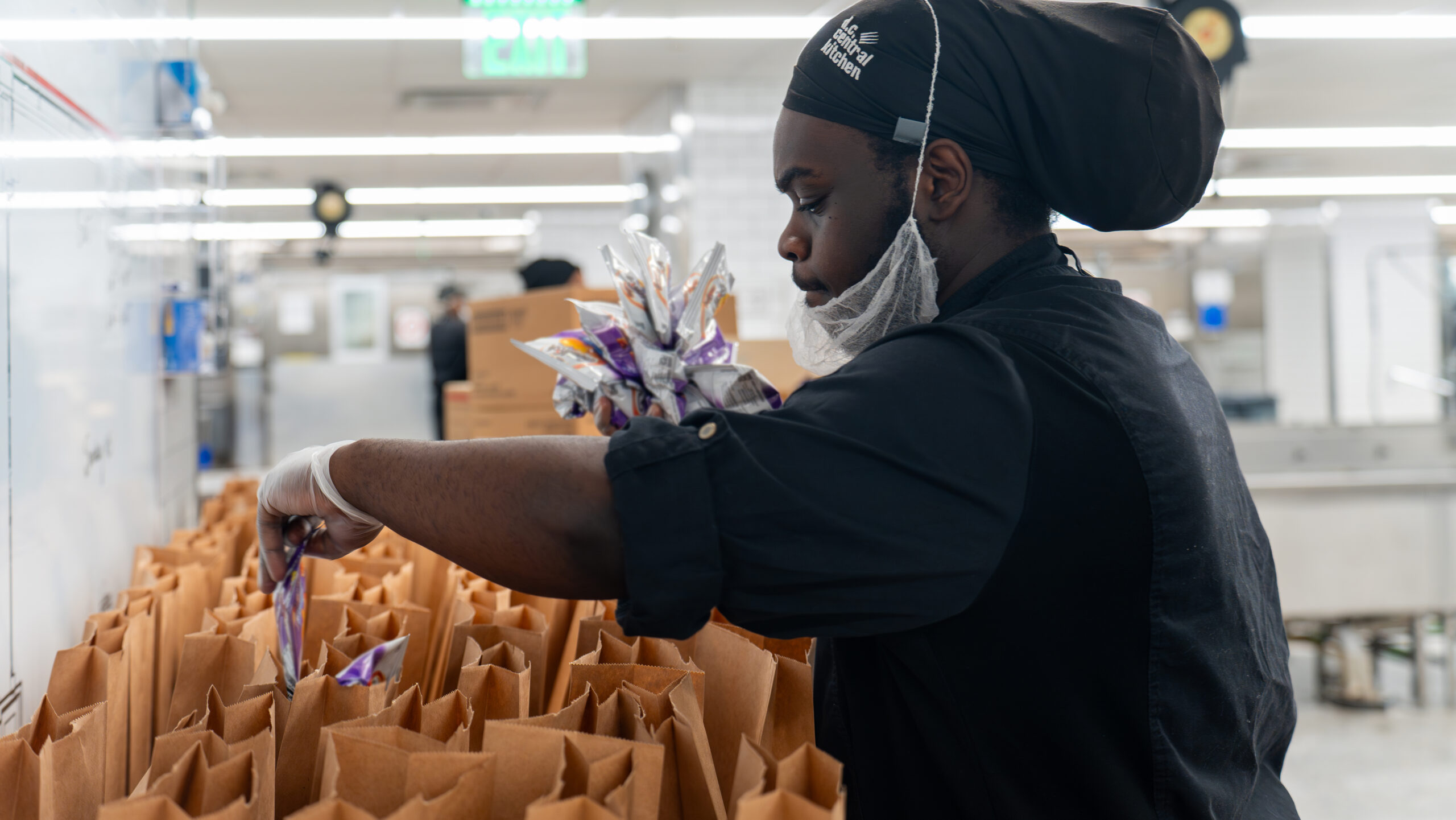If you live in Washington, DC, you’re used to seeing roads blocked for special events, motorcades rushing past, and first responders hard at work. When a president is inaugurated, these types of security measures ratchet up to their highest levels.
But if you live on the streets or in the shelters of this city, those inaugural barriers and blockades might stand between you and your only meal. After all, the Federal City Shelter—the District’s largest emergency shelter for its homeless residents—sits on Second and D Streets NW, just a few blocks from the U.S. Capitol. For ten straight inaugurations (and every single day in between), DC Central Kitchen has provided food to this shelter and those seeking safety within its walls.
On a normal day, DC Central Kitchen delivers 430 hot suppers to the Federal City Shelter from our new headquarters in Southwest DC. When temperatures drop below freezing, we increase our daily deliveries to the building by another 700 breakfast and dinner meals in anticipation of additional people trying to come in from the cold.
A week before the 60th presidential inauguration, our culinary operations team knew they had to change that already intense routine. Security barriers were set to be placed that Sunday evening, 18 hours ahead of the ceremony. It was clear that none of our brightly colored delivery vans would be allowed inside the security perimeter, even for the purpose of feeding people facing hunger under hypothermia conditions. Due to its location, the Federal City Shelter would be especially impacted, but our staff soon identified another 13 shelters and agencies that would need to change their delivery schedules because of security installations and road closures.
Our team hustled to rearrange an already 24-hour-a-day kitchen operation. The plan? To deliver meals for Sunday, Monday, and even Tuesday morning all at once on Sunday, January 19th. It meant moving up food orders and production schedules throughout the preceding week and weekend, and then finding a way to move more than 2,200 meals to the Federal City Shelter in a single day, all while modifying some menu items to include shelf-stable ingredients that could be held safely at the shelter until normal deliveries resumed. Staff rush-ordered 5,000 pounds of alternative food items, including some appealing bottles of orange and apple juice that could sit unrefrigerated until opened and pair nicely with meals that prominently featured hand-fruits and whole grains.
On the afternoon of Thursday, January 16th, another official email landed in staff inboxes. The plan had to change. Again. The security perimeter would now be placed 12 hours earlier, at 6am on Sunday morning. The concept of the massive Sunday delivery had to be scrapped and expanded even further. “What do we do, park outside the barrier and push the meals on carts for three blocks?” wondered one staffer.
The icy sidewalks and excessive manpower requirements meant that particular elbow-grease solution had to be cast aside. Sunday’s, Monday’s, and Tuesday’s meals would go out on Saturday alongside Saturday’s hot dinner, a total of nearly 3,400 dishes, all at once, via a very full box truck instead of the usual refrigerated van. “We made a plan [earlier in the week]…but then we had to pivot again,” said Transportation Director Chris Lucas, who has coordinated our food deliveries through four inaugurations. “It’s challenging and it takes a lot of planning. But this is what we do.”
As the minutes ticked away on Friday, January 17, staff busily assembled full meals and kits of sandwich ingredients. “Sometimes we have to think in a flash,” said Miyell Ashmon, a 2021 graduate of our Culinary Job Training program, as he stood alongside a few hundred freshly packed lunches, checking that each was just right. “I’ve been really impressed with how everyone is stepping up,” said Chief Operating Officer Dusty Cooper that afternoon. “I haven’t seen anyone blink an eye. They understand why we’re doing this, and they want to get the meals out.” The staff was moving briskly, but with more purpose than panic. “It takes a lot to get folks flustered around here,” said Cooper.
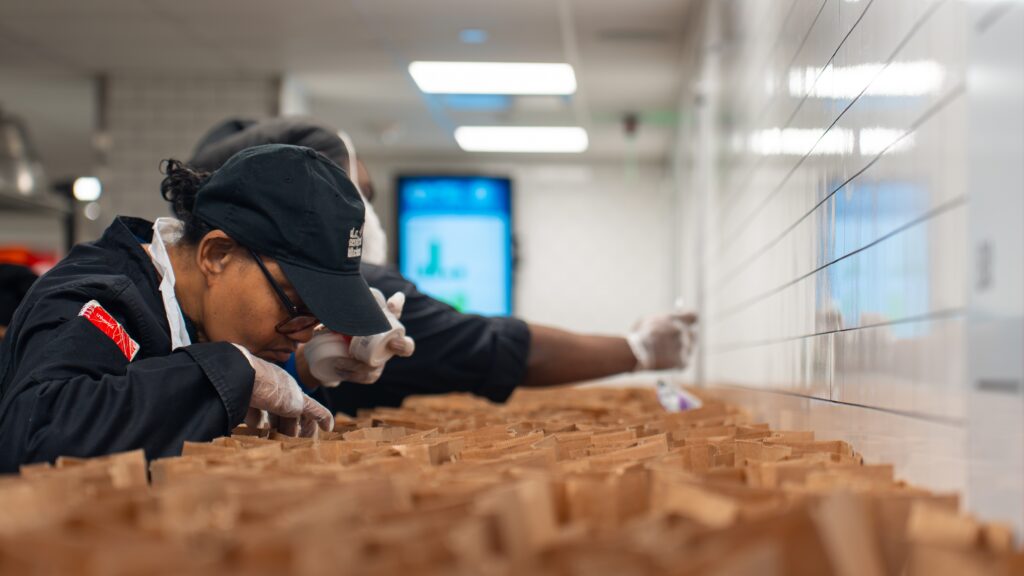
Some employees were reminded of the last time a Capitol Hill security perimeter made their jobs harder.
On the morning of January 6th, 2021, DC Central Kitchen was still headquartered in the windowless basement of the Federal City Shelter, as we had been for 30 years. Our front-line staff hustled to prepare and distribute their meals early that day, as rumblings of rallies disputing election results convinced CEO Mike Curtin that “it was just not a safe time or safe place for our staff to be.” By noon, the always-open kitchen had uncharacteristically darkened its lights and its staff had gone home. Soon after, some demonstrators turned violent and stormed the Capitol.
The ensuing security response placed armed personnel and barbed wire fencing steps from the Federal City Shelter, penning in DC Central Kitchen’s operation and making additional deliveries to and from the building impossible. Some employees scrambled to haul food and materials to an alternative location on the other side of town while others checked into a hotel across from the shelter, so they could sleep inside the perimeter and keep cooking meals for the shelter residents confined upstairs. Once again, DC Central Kitchen just found a way.
Four years later, a new emergency fence was set to be installed around the Federal City Shelter. In the time between, DC Central Kitchen had relocated to a new headquarters, vastly expanded our programming, and won more than a dozen awards for innovation and community impact. But that same defining grit, that unquestioned commitment to being open every day and never missing a meal—no matter the barrier—had not changed one bit.
On Saturday afternoon, as the temperature plummeted, the last fully loaded cart of food wheeled into place in the rear of that box truck. The truck carried two members of our Transportation team instead of the usual one; unloading all those meals in the frigid conditions required an extra set of hands.
Extra hands. Extra meals. And no complaining. On January 20th, 1989, DC Central Kitchen marked its very first day of operations, shuttling leftovers from that day’s inaugural events to the city’s shelters. Exactly 36 years later, we made sure that whatever was happening on Capitol Hill, our doors were open, our kitchen was cooking, and our neighbors were nourished.
This is what we do.
